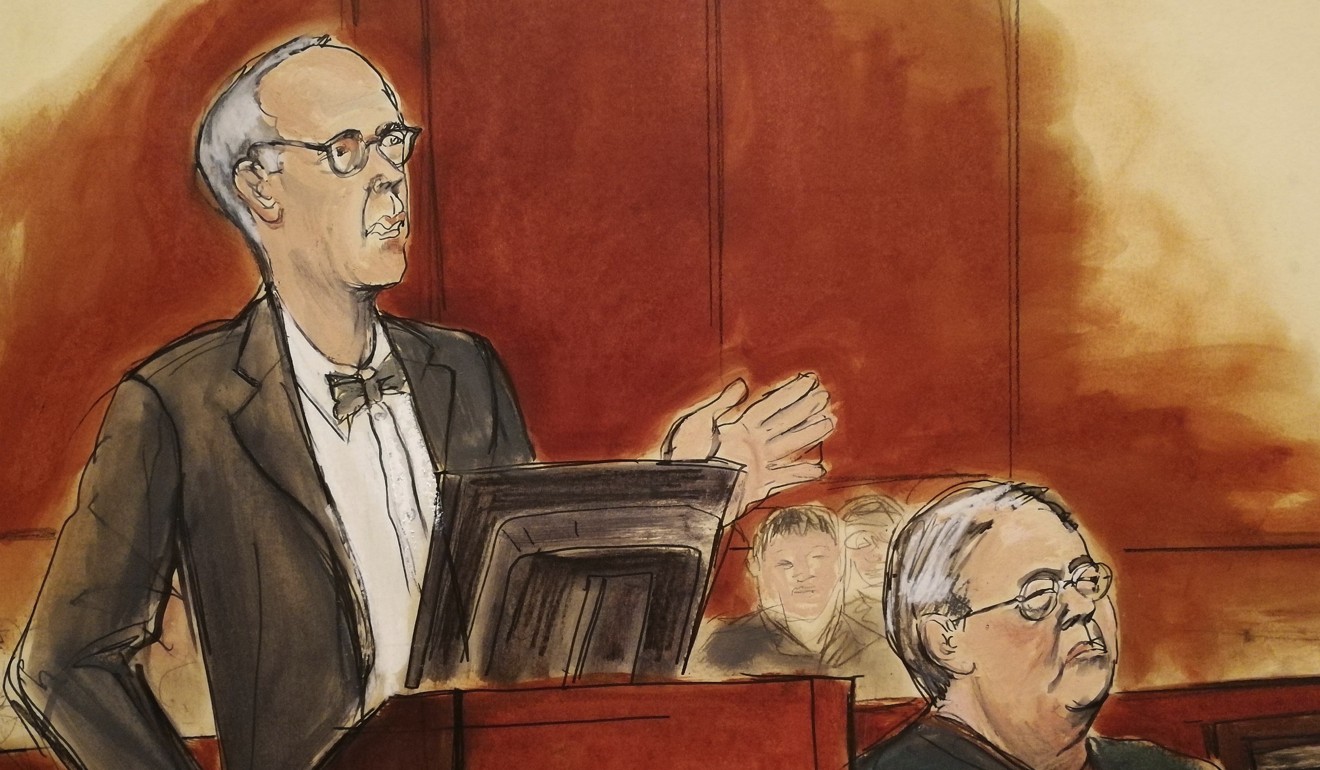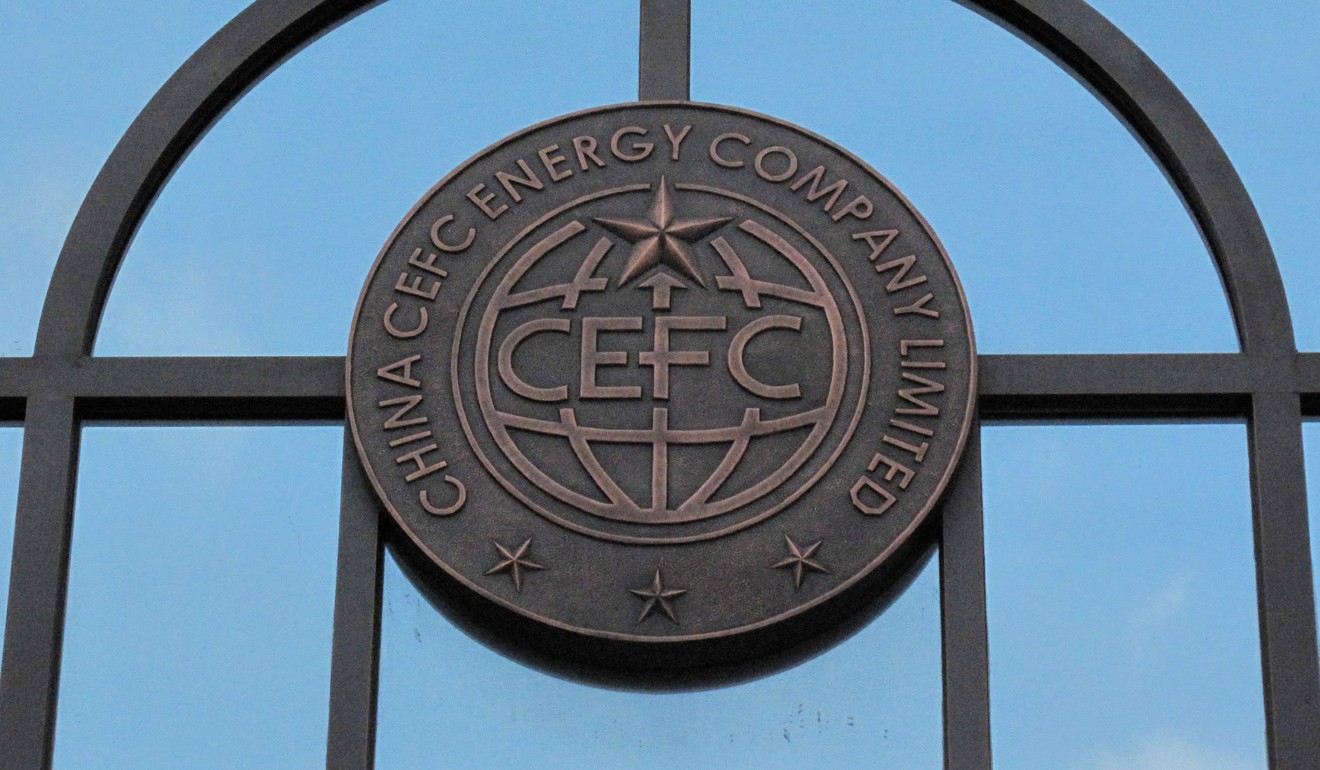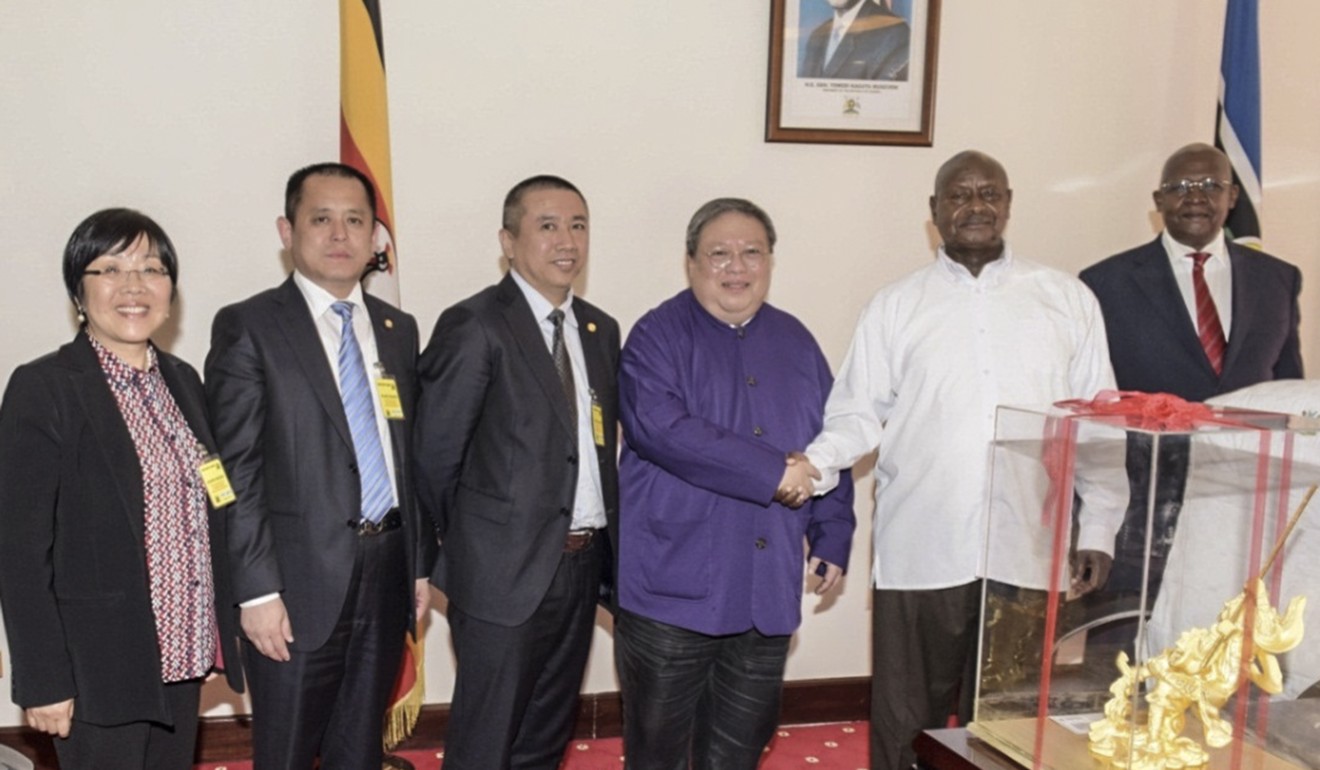
Former Hong Kong minister Patrick Ho waives chance to claim China’s support for his defence eroded his legal rights in US oil bribery case
Hearing called to address concerns raised by Ho’s prosecutors that emails and phone records they had reviewed suggested a Chinese company was paying his legal fees
Former Hong Kong home affairs secretary Patrick Ho Chi-ping, who faces money laundering and corruption charges in the US, has waived any chance to claim his legal rights were undermined by his defence lawyers, who are allegedly being paid by a Chinese company connected to the case.
Emails and phone records reviewed by prosecutors “strongly suggest the defendant’s legal fees are being paid in whole or in part” by CEFC China Energy, a Shanghai-based group connected to the government, a May 1 letter submitted to the court by Justice Department prosecutor Geoffrey Berman said.
The prosecution has suggested that because CEFC is connected to the case against Ho, his lawyers might at some point work against his interests and in favour of the energy company.
Judge Katherine Forrest convened a special pretrial hearing on Monday to discuss the matter, telling Ho he was entitled to conflict-free counsel capable of providing him complete loyalty and confidentiality.
But at the hearing in a Southern District of New York US federal court, Ho said no parties had forced or required that he retain his current defence team of Dechert LLP and Krieger Kim & Lewin LLP.

No one identified the company as CEFC China Energy in their remarks in Monday’s hearing, only as “the energy company”; the company’s name emerged in court documents from the trial.
“The energy company part also appears to have played a role in retaining certain defence counsel,” Berman said in the May 1 letter.
On Monday, Forrest questioned Ho, the defence team, and Richard Weinberg, an independent lawyer engaged to advise Ho about the potential conflicts he faces if the energy company is paying his legal fees, about whether Ho was briefed and understands the implications of a waiver in this matter.
Patrick Ho denied bail for third time in US corruption charges
“At this time, I have no reason to believe [your counsel] would violate the duties they owe to you, but we can’t know right now how these issues could come up,” Forrest said.
“The energy company could have a witness come to the US and testify against your interests. … You give that issue up forever.”
Forrest last month denied a third bail application submitted by Ho’s defence team after considering additional documents submitted by the defendant, whom Forrest called a flight risk.

Ho has been charged with three counts of money laundering and five counts of violating the Foreign Corrupt Practices Act. He is accused of offering US$2.9 million (HK$22.8 million) worth of bribes to African government officials in return for oil rights in Uganda and Chad for an unnamed Shanghai-based energy firm he represented.
The firm was later revealed to be CEFC, and Ho was working for China Energy Fund Committee, a sustainable-energy think tank financed by the company at the time of his arrest.
After he stepped down as the city’s secretary for home affairs in 2007, Ho joined the China Energy Fund Committee, as secretary general of its Hong Kong Non-Governmental Fund Committee, starting what he called a life of “civil diplomacy” and focusing on energy strategies and Sino-US dialogues.
US lawyers fire back at Ho’s attempt to get bribery charges thrown out
The CEFC think tank has special consultative status with the UN’s Economic and Social Council, giving it access to influential decision makers on UN bodies.
Ho’s access to the UN’s top echelons was cited by the US Justice Department in its initial 54-page account of allegations against Ho issued in November 2017 as laying the groundwork for some of the events deemed criminal by the US authorities.
In the same month he was planning the Chad trip, Ho arrived at the UN headquarters in New York. There, he held a three-hour meeting with the rotational president of the UN General Assembly, Sam Kutesa.

When Kutesa vacated the role a year later, he resumed his job as Uganda’s foreign minister. His wife started writing emails to Ho, saying her husband “would like in particular to catch up with you regarding his foundation which he wishes to launch as soon as possible and would appreciate to receive the contribution/donation” promised by the energy firm’s chairman.
In Monday’s hearing, Dechert attorney Andrew Levander declined to say whether anyone on Ho’s defence team was being paid by the energy company, saying only that “we are in the may-be-paying and not the are-paying category”.
Ho, who has pleaded not guilty to all charges, had previously sought bail with a US$10 million personal recognisance bond, secured by US$2 million cash surety, and submitted to house arrest as part of a bail package.
He challenged six of the eight charges against him. In Ho’s latest bail application, rejected by Forrest, he proposed to add his mother and brother’s flats in Hong Kong into the equation, while also increasing the cash surety to US$3 million.

